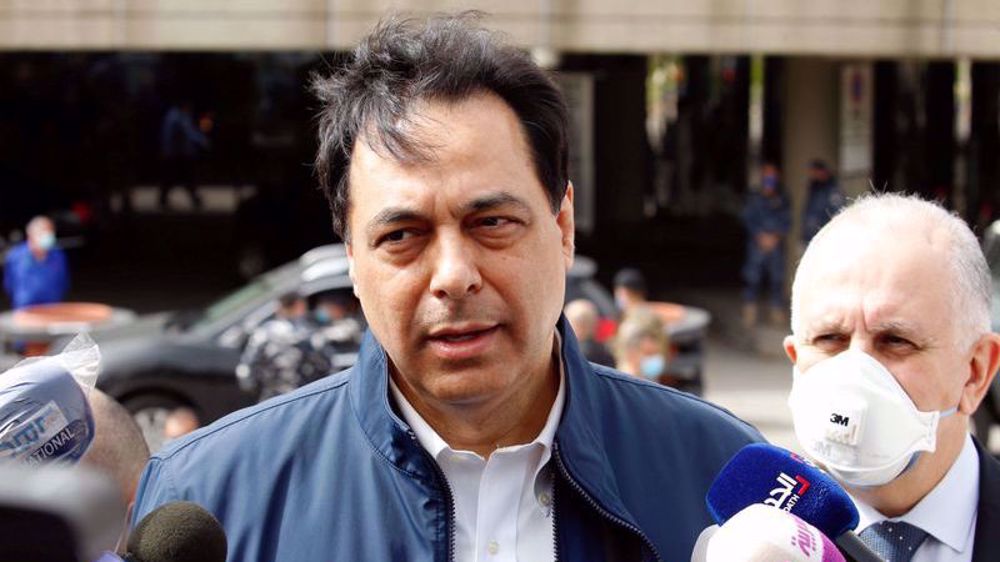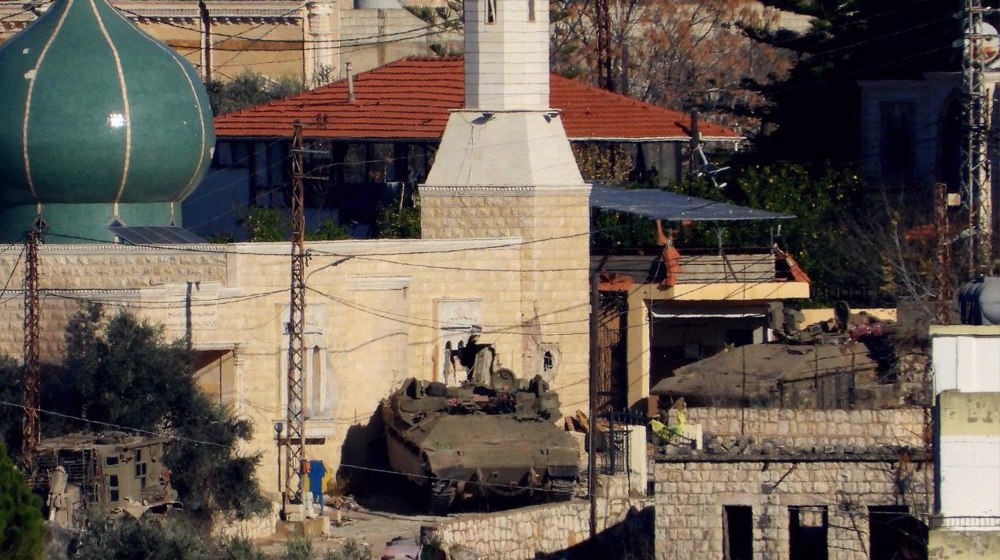Lebanon premier pledges to eradicate devaluation of pound, bring down food prices
Prime Minister Hassan Diab has pledged to stem the growing devaluation the Lebanese pound and introduce subsidies on food imports to reduce sky-rocketing prices.
“I have been given a promise from the governor of the central bank that the central bank will intervene in the market as of today to protect the Lebanese pound and to curb the high dollar exchange rate," Diab said on Thursday.
Last month, the central bank ordered exchange offices to limit the rate at 3,200 to the dollar, but the Lebanese pound has continued to devalue.
Lebanon defaulted on its sovereign debt in March for the first time. Its currency has shed more than half its value on the black market, from the official rate of 1,507 to more than 4,000 pounds to the dollar, and savers have been largely shut out of their deposits since October.
Consumer goods prices in the import-dependent country have soared by 50 percent since then, rendering many people unable to afford even basics like bread.
According to official estimates, poverty has increased to 45 percent and inflation is more than 50 percent.
On Monday, the government accused a top central bank official of manipulating the exchange rate. It has also arrested dozens of money changers during the past couple of weeks as part of a larger crackdown on alleged currency manipulators.
The crippling devaluation has triggered unprecedented hikes in the price of food, much of which is imported.
"The import of basic food commodities will be subsidized according to fixed schedules," Diab said. "There will be a daily follow-up to reduce food prices and Lebanese people will soon be witnessing a decrease in relevant commodity prices."
Parliament approved Diab's new government on February 11 after months-long cross-sectarian protests unseated his predecessor Saad Hariri in late October last year, creating a persisting political void for the next several months.
The economic paralysis is rooted in decades of bad governance that landed Lebanon with one of the world's biggest public debt burdens. The economic hardship has infuriated the public and spurred unrest across the country, leading to protests and frequent attacks on banks.
The Lebanese premier, however, warned of a financial meltdown that could tip the country into a full-blown food crisis.
“Once the breadbasket of the Eastern Mediterranean, Lebanon is facing a dramatic challenge that seemed unimaginable a decade ago: the risk of a major food crisis,” Diab wrote in the Washington Post Thursday.
He also said attempts by certain countries to limit food exports to Lebanon must be resisted, calling on the US and the European Union to establish an emergency fund to help the Middle East avoid a humanitarian disaster.
“Starvation may spark a new migration flow to Europe and further destabilize the (Middle Eastern) region,” Diab said, adding that a few weeks earlier Lebanon had witnessed its first hunger protests.
“Many Lebanese have already stopped buying meat, fruits and vegetables, and may soon find it difficult to afford even bread,” he further wrote.
The COVID-19 lockdowns have further deteriorated the economic hardships across many cities of the small country.
Dec. 22: ‘Axis of Resistance’ operations against Israeli occupation
‘Abhorrent’: Oxfam says only 12 trucks delivered aid in North Gaza since Oct.
VIDEO | Leader receives religious eulogists on Hazrat Fatima birth anniv.
Pope Francis slams Israel’s ‘machine-gunning’ of Gaza children
US hostage-taking of Iranian nationals violation of intl. law: Deputy FM
VIDEO | Carol Singers for Palestine on London’s Parliament Square
Ansarullah says ‘Israeli terrorists’ incapable of confronting Yemen, warns of secret weapons
VIDEO | Yemenis praise the military for its successful operations against Israel












 This makes it easy to access the Press TV website
This makes it easy to access the Press TV website